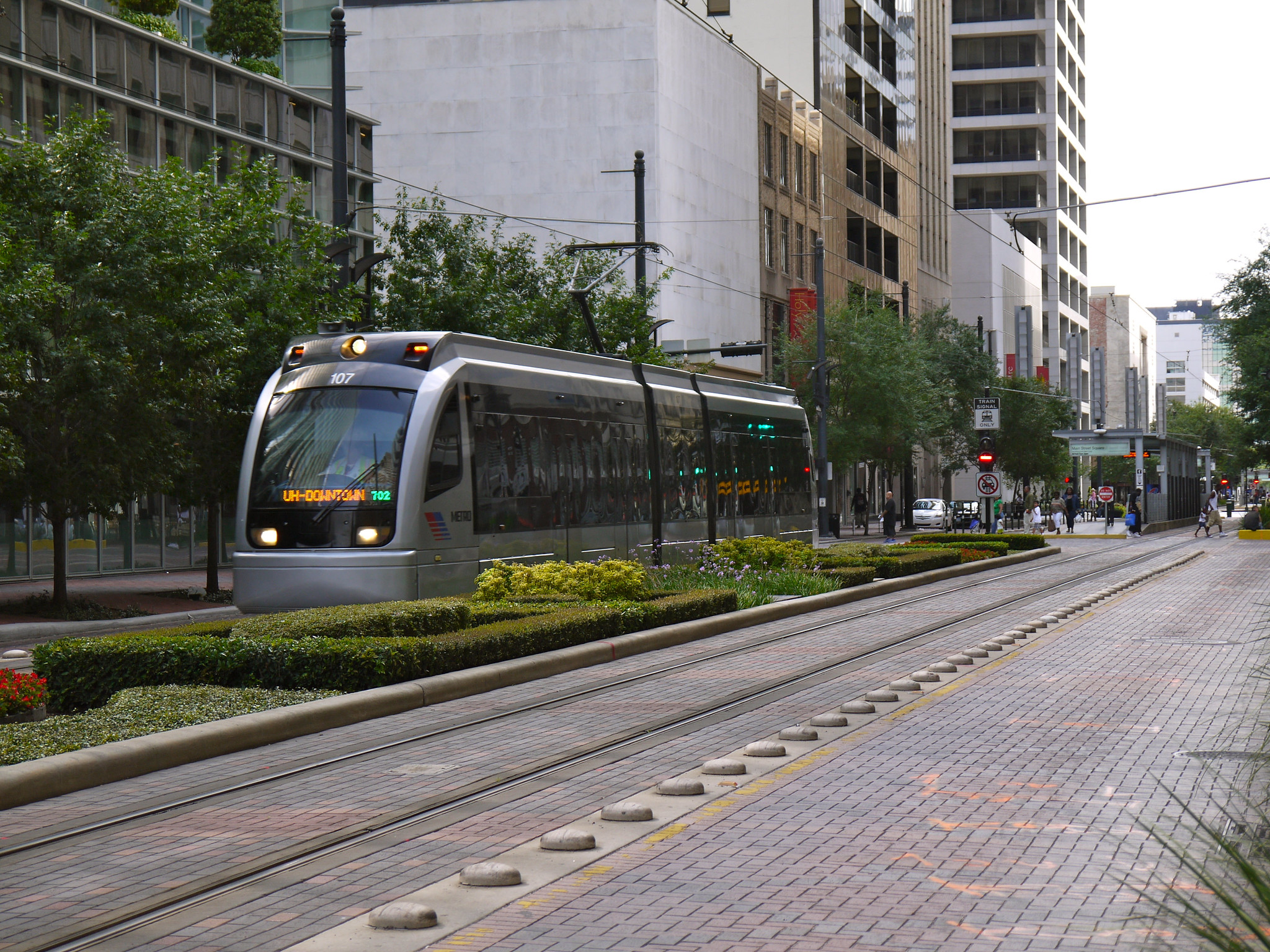Houston has a once-in-a-generation opportunity to modernize its transit system this fall — and the city hopes to learn from Nashville's mistakes.
The Metropolitan Transit Authority of Harris County signed off last week on a $3.5-billion bond measure that would fund a smorgasbord of light rail lines, high-occupancy vehicle lanes, and rapid busways in Houston over the next two decades.
Voters of the nation's fourth largest city will have the final say on the measure in November, a necessary part of the democratic process that can lead to unpredictable results and heartbreak for transit advocates.
Take Nashville, whose voters overwhelmingly rejected a $5.4-billion transit plan that would have raised local sales taxes to pay for expanded bus and light rail service, as well as a mix of hotel, rental car, and business tax surcharges, plus fare revenue and bonds totaling $2.5 billion.
Both Nashville and Houston are booming car-centric Southern cities whose leaders nevertheless sought to expand mass transit to increase mobility for existing residents and continue to attract young people who may be less interested in car ownership.
Unlike Music City, Houston transportation officials have not so far encountered a well-funded dark money campaign aimed at sinking future rail and bus lines. Local business leaders have instead formed a political action committee to galvanize support for the ballot measure.
Perhaps more important, Houston's leaders are committed to not raise any new taxes to fund their transit plan.
Instead they want to issuing bonds for future sales tax revenue, redirect some sales tax revenue for transit improvements, and secure another $3.5 billion from the Federal Transit Administration. The FTA had already doled out $900 million for a $2.2-billion expansion of light rail from 2011 to 2017.
"We’re looking for over $3 billion from the federal government, bonding authority, then local money. Our local money is what we already get in taxes. Not a tax increase," METRO Board of Directors chairwoman Carrin Patman told KHOU Houston.
If voters approve the bond measure, and if the feds kick in the rest of the money, Houston will be able to transform its transit system by extending three light rail lines, adding rapid bus lanes on Interstate 10, on Interstate 45 to Bush Intercontinental Airport, and along Interstate 69 through Midtown to the University of Houston, and creating high-occupancy vehicle lanes for Houston's freeways.
A top priority of METRO will be extending the green and purple lines to link up with Hobby Airport, which would cost $1.4 billion, although the authority eventually wants its trains to link up with Bush Intercontinental Airport as well.
The ballot item will also seek to give one-quarter of revenue collected from its 1 percent sales tax to city governments and Harris County for bike lanes, sidewalks, and other traffic and street safety improvements.
Transit advocates had faith that voters would make the correct choice for Houston's future.
“The proposed enhancements promise to provide faster, more frequent, and more reliable service, improved access to the system, and better customer experience,” Citizens Transportation Coalition Chairman Dexter Handy told the Houston Chronicle. “For this to work, I look forward to a METRO network where users have a seamless integrated transportation network from their doorstep to the destination.”
Transit funding isn't the only consequential decision Houston voters will make on the ballot this year.
Democratic Mayor Sylvester Turner is facing a rematch with moderate Bill King and a challenge from millionaire attorney Tony Buzbee, while a spate of City Council seats are on the ticket, likely driving voter turnout.
Mobility, particularly where to direct limited resources, is emerging as a key issue in political races this summer. Houston's $7-billion plan to widen several freeways including Interstate 45 and 69 remains a highly controversial "environmental justice disasters" which could displace thousands of low-income residents.
Meanwhile, transit advocacy group LINK Houston estimates nearly 1 million people need better access to the region's trains and buses.
“We tend to spend too much time focusing on the means — light rail versus bus rapid transit, for instance — than the end goal: whether this transportation plan connects real people to real opportunities,” Oni Blair, executive director of LINK, told the Chronicle.
Soon voters will have a chance to make a statement about the region's transportation priorities.






